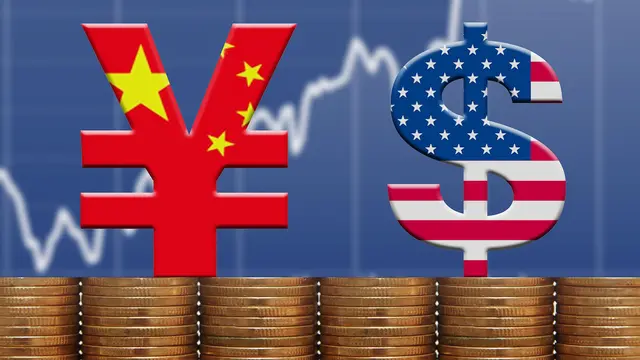Charles Yueng, head of Chinese Chamber of Commerce (1st right) spoke at the Hong Kong, Taiwan, and Mainland Financial and Economic Forum . (APD/Pan Jie).
China's urbanization is likely to fuel consumer demand and create enormous business opportunities for Hong Kong entrepreneurs, experts said at a forum on Thursday.
Fred Lam, Executive Director of Hong Kong Trade and Development Council (HKTDC), said at the Hong Kong, Taiwan, and Mainland Financial and Economic Forum that China's urbanization is likely to bring business opportunities that are mostly likely to be found in industries related to consumer services.
"As a large number of migrant workers move to the city, there will be more urban population with higher income and greater purchasing power," Lam said. "They place more importance on status and enjoyment, and they are likely to consume items beyond basic necessities, such as consumer services related to entertainment, tourism, and culture."
According to statistics, of the per capita consumption expenditure of rural residents across the Chinese mainland, spending in cultural and entertainment services in 2011 was 5.6 times that in 2000. The share of dining out in urban residents' spending on food rose from 14.6% in 2000 to 21.5% in 2011.
In addition to consumer services, China's urbanization is also likely to create business opportunities in such sectors as transportation, infrastructure, and public services. Lam suggested that urbanization would not just concentrate on existing large cities, but also second- and third-tier cities as well as metropolitan links.
He cited the rapidly urbanizing Yangtze River Delta as an example. In addition to the metropolitan Shanghai, he said, there has been rapid development of second- and third- tier cities in the neighboring provinces of Jiangsu and Zhejiang provinces, such as Changzhou and Nantong, forming a large Yangtze River Delta metropolis circle.
Hong Kong companies can participate in the construction and management of infrastructure projects in the mainland. "Hong Kong boasts its international standard customer service, as well as lots of experiences in planning and managing urban infrastructure and facilities," Lam said.
Many local companies have already been stepping out of the city border and seeking business opportunities in the mainland. The MTR Corporation, the largest railway company in Hong Kong, has been involved in the operation of Beijing Metro Line 4 since September 2009. The company has also been in full charge of the building and operation of Shenzhen Metro Line 4 since July 2010.
"China's urbanization is likely to be in line with rural modernization and development of farm commodities," Lam said, adding that Hong Kong food producers could work with mainland counterparts in the processing and logistics of agricultural products.
In view of the huge consumer demand resulting from China's urbanization, Charles Yueng, head of Chinese Chamber of Commerce and chairman of Glorious Sun Group, said that enterprises should follow the trend and focus more on the retail sector.
He said that his conglomerate has transformed from a manufacturing-predominated to retail-predominated firm, increasing the percentage of turnover in retail from zero in 1990 to 69% in 2012.
As more rural migrant workers become urban dwellers, their purchasing power cannot be ignored. According to a nationwide survey of 1,500 migrants by China Confidential, a Financial Times research service, migrant workers spent Rmb 4.2 trillion ($677bn) on consumer goods and services in 2012.
This emerging consumer group also has more consciousness on brands. A report by Financial Times says such early fumbles towards brand sophistication are remarkable as they used to be treated with almost universal condescension by city dwellers only a decade ago. Yueng said his business strategy is to make the brand name products affordable to the general public, a tactic also adopted by multinational brands like Uniqlo, H & M and Zara.
Yueng also advised Hong Kong companies to make good use of the central government's favorable policy measures, including CEPA (Closer Economic Partnership Arrangement) where various service sectors on the mainland are opened to Hong Kong firms, as well as preferential tax policies for small-scale and low-profit enterprises.
 简体中文
简体中文







